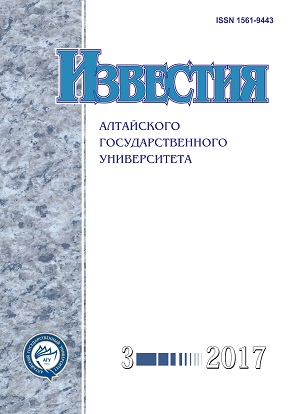Laws of Development of Criminalistic Registration in Russia
Abstract
The paper considers the history of formation and development of criminalistic registration in Russia and abroad. The author bases his opinion on the observation of the laws of the development of the society, his its scientific achievements. It is proposed to break the evolution of forensic registration into four stages conditionally. The first stage is descriptive and filing. In this period data on criminals were recorded in special magazines and other forms as hard copies in a descriptive way. The second stage is scientific and visual registration. At this stage, in spite of the written description, the fixation of images of forensic objects appears. These are photos of criminals and their fingerprints. The third stage is scientific and instrumental registration. In this period the range of registered objects is expanding. The objects with potential forensic significance are included in its sphere. The fourth is a single information and telecommunication registration. At this stage the information resources are integrated in a single space with the use of modern computer technologies.
DOI 10.14258/izvasu(2017)3-22
Downloads
Metrics
References
Гейндль Р. Уголовная техника: Из мастерской уголовного розыска / пер. с нем. - М., 1925.
Аверьянова Т.В., Белкин Р.С., Корухов Ю.Г., Российская Е.Р. Криминалистика : учебник для вузов. / под ред. Р.С. Белкина. - 2-е изд., перераб. и доп. - М., 2006.
Мунчаев Ш.М., Устинов В.М. История России : учебник для вузов. - М., 1997.
Яровая М.В. Особенности англо-американской и континентальной моделей суда присяжных и проблемы его реставрации в России // Российская юстиция. - 2006. - № 1.
Крылов И.Ф., Бастрыкин А.И. Розыск, дознание, следствие. - Л., 1984.
Трегубов С.Н. Основы уголовной техники. Научно-технические приемы расследования преступлений : практ. рук-во для суд. деятелей. - М., 1915.
Торвальд Ю. Сто лет криминалистики. - М., 1974.
Агафонова Ю.А., Кваши Ю.Ф. Основы оперативно-разыскной деятельности органов внутренних дел. - М., 2009.
Миронов А.И. Судебно-экспертные учреждения Царской России // Экспертная практика. - 1999. - № 46.
Живин Н.П. Современный этап развития программы МВД России // Создание единой информационно-телекоммуникационной системы органов внутренних дел : материалы Всерос. семинара-совещ. руководителей информ. центров МВД, ГУВД, УВД субъектов РФ, УВДТ. - М., 2005.
Королёв Н.В. О ходе реализации и основных задачах программы МВД России «Создание единой информационно-телекоммуникационной системы органов внутренних дел» [Электронный ресурс]. - URL : http://www.mvd. ru/struct/3311/3940/4828/?print.
Copyright (c) 2017 В.Х. Каримов

This work is licensed under a Creative Commons Attribution 4.0 International License.
Izvestiya of Altai State University is a golden publisher, as we allow self-archiving, but most importantly we are fully transparent about your rights.
Authors may present and discuss their findings ahead of publication: at biological or scientific conferences, on preprint servers, in public databases, and in blogs, wikis, tweets, and other informal communication channels.
Izvestiya of Altai State University allows authors to deposit manuscripts (currently under review or those for intended submission to Izvestiya of Altai State University) in non-commercial, pre-print servers such as ArXiv.
Authors who publish with this journal agree to the following terms:
- Authors retain copyright and grant the journal right of first publication with the work simultaneously licensed under a Creative Commons Attribution License (CC BY 4.0) that allows others to share the work with an acknowledgement of the work's authorship and initial publication in this journal.
- Authors are able to enter into separate, additional contractual arrangements for the non-exclusive distribution of the journal's published version of the work (e.g., post it to an institutional repository or publish it in a book), with an acknowledgement of its initial publication in this journal.
- Authors are permitted and encouraged to post their work online (e.g., in institutional repositories or on their website) prior to and during the submission process, as it can lead to productive exchanges, as well as earlier and greater citation of published work (See The Effect of Open Access).








